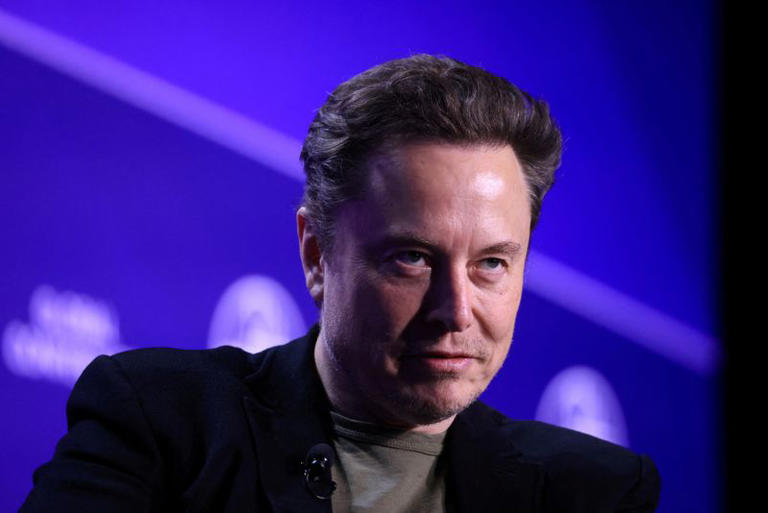Elon Musk, US tariffs, Chinese EVs, electric vehicles, Tesla, trade barriers, Biden administration, US-China trade, global auto industry
Tesla founder Elon Musk has made headlines once again, this time for his stance on U.S. tariffs imposed on Chinese electric vehicles (EVs). Speaking to tech investors at the Viva Technology conference in Paris, Musk voiced his opposition to these tariffs, marking a significant shift from his previous stance. In January, Musk had warned that without trade barriers, Chinese automakers would “demolish” global competitors. However, his recent comments reflect a clear departure from that position.

The Context of the Tariffs
Earlier this month, U.S. President Joe Biden announced new tariffs on a range of Chinese imports, including EVs. This move is part of a broader strategy to bolster American manufacturing. The Biden administration has not only upheld many of the tariffs introduced by former President Donald Trump but has also intensified some of them, including increasing EV duties to over 100%. According to the White House, these new measures impact approximately $18 billion worth of imported Chinese goods.
Musk’s Changed Perspective
At the Viva Technology conference, Musk stated, “Neither Tesla nor I asked for these tariffs, in fact, I was surprised when they were announced. Things that inhibit freedom of exchange or distort the market are not good.” He emphasized that Tesla competes effectively in the Chinese market without the need for tariffs or preferential support. “I’m in favour of no tariffs,” Musk declared.
This marks a notable shift from Musk’s earlier comments in January, where he had expressed concern that without trade barriers, Chinese automakers would outcompete and potentially overtake global car companies. During a post-earnings analyst call at the beginning of the year, Musk had warned, “If there are no trade barriers established, they will pretty much demolish most other car companies in the world.”
Implications for the Auto Industry
Musk’s latest stance is likely to spark further debate on the efficacy and impact of tariffs on the auto industry, particularly the EV sector. While tariffs are designed to protect domestic manufacturers, critics argue that they can also lead to higher costs for consumers and potentially stifle innovation. Musk’s comments suggest that he believes market forces should determine the success of companies rather than government-imposed barriers.
Reactions from the Industry and Beyond
The annual VivaTech conference, where Musk made his comments, is a significant event that attracts leading tech executives and political figures. This year, notable participants included ex-Google CEO Eric Schmidt and former U.S. climate envoy John Kerry. Linda Yaccarino, the CEO of Musk-owned social media platform X, was also expected to participate in a panel discussion on the future of content.
Musk’s remarks are likely to resonate within the broader context of U.S.-China trade relations, which have been tense in recent years. The tariffs imposed by the Biden administration are part of a broader strategy to address trade imbalances and protect domestic industries. However, Musk’s opposition highlights a growing concern among some industry leaders about the potential negative impacts of such measures.
The Broader Trade Landscape
The ongoing trade tensions between the U.S. and China have far-reaching implications beyond the auto industry. Tariffs and trade barriers affect a wide range of sectors, from technology to agriculture, and have significant economic and political ramifications. As the two largest economies in the world, the actions and policies of the U.S. and China are closely watched and can influence global markets.
Musk’s comments underscore the complexity of trade relations and the challenges faced by companies operating in a global market. While tariffs can provide temporary protection for domestic industries, they can also lead to retaliatory measures and increased costs for businesses and consumers.
Looking Ahead
As the debate over tariffs and trade barriers continues, industry leaders, policymakers, and consumers will be watching closely to see how these measures impact the market. Musk’s call for a tariff-free approach reflects a broader trend among some business leaders who advocate for open markets and minimal government intervention.
The future of the EV market, in particular, will be shaped by a range of factors, including technological advancements, consumer demand, and regulatory policies. Musk’s remarks at the VivaTech conference highlight the ongoing tension between protecting domestic industries and promoting global competition.
Conclusion
Elon Musk’s opposition to U.S. tariffs on Chinese EVs represents a significant shift in his stance and adds a new dimension to the ongoing debate over trade policy. While tariffs are intended to protect domestic industries, they also have the potential to distort markets and increase costs. As the U.S. and China navigate their complex trade relationship, the perspectives of influential industry leaders like Musk will play a crucial role in shaping the future of global trade and the automotive industry.
Read More-